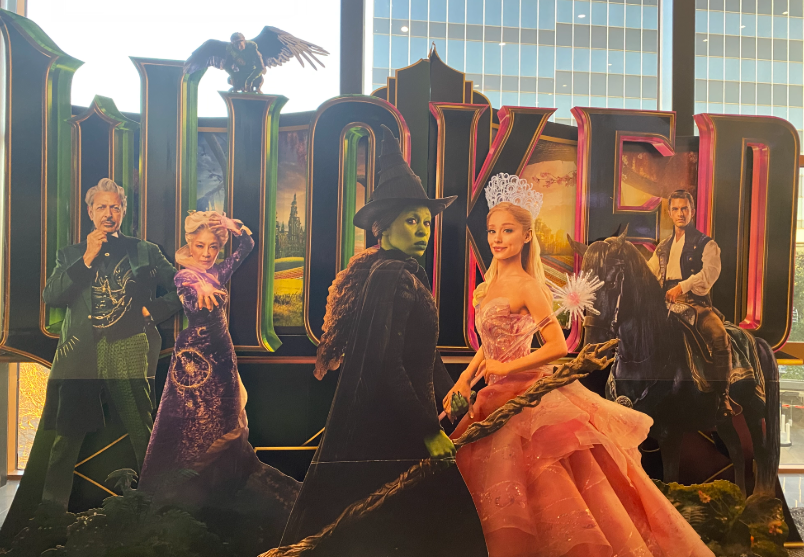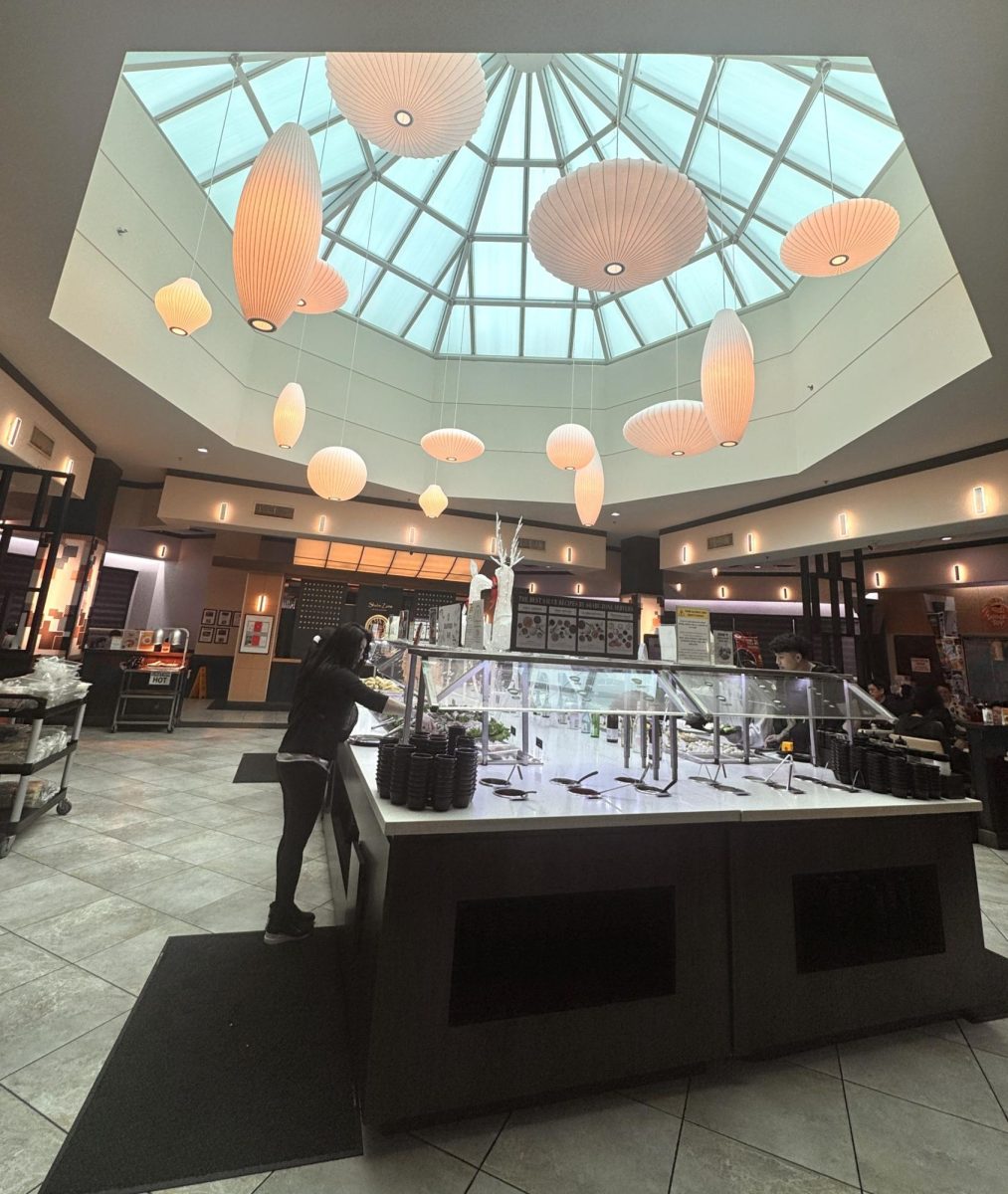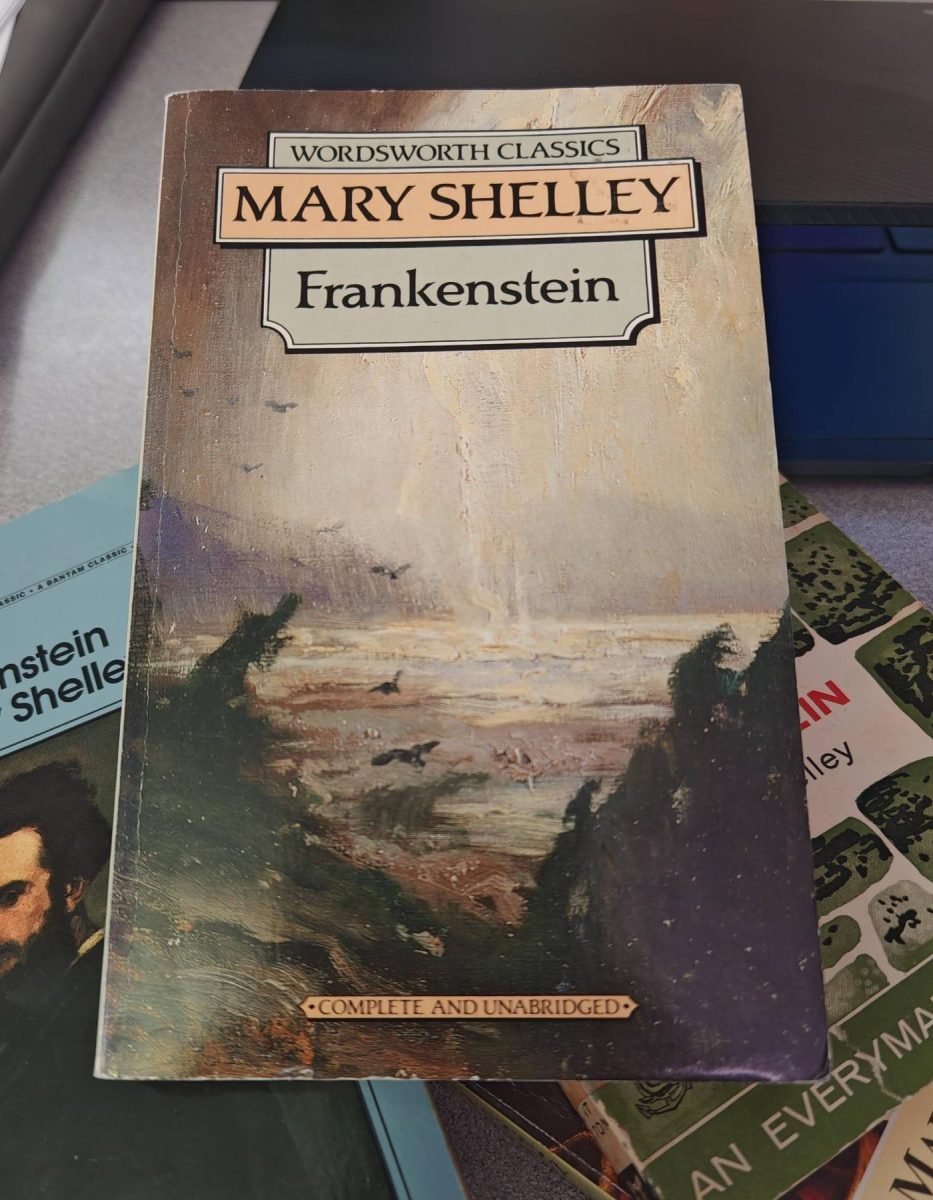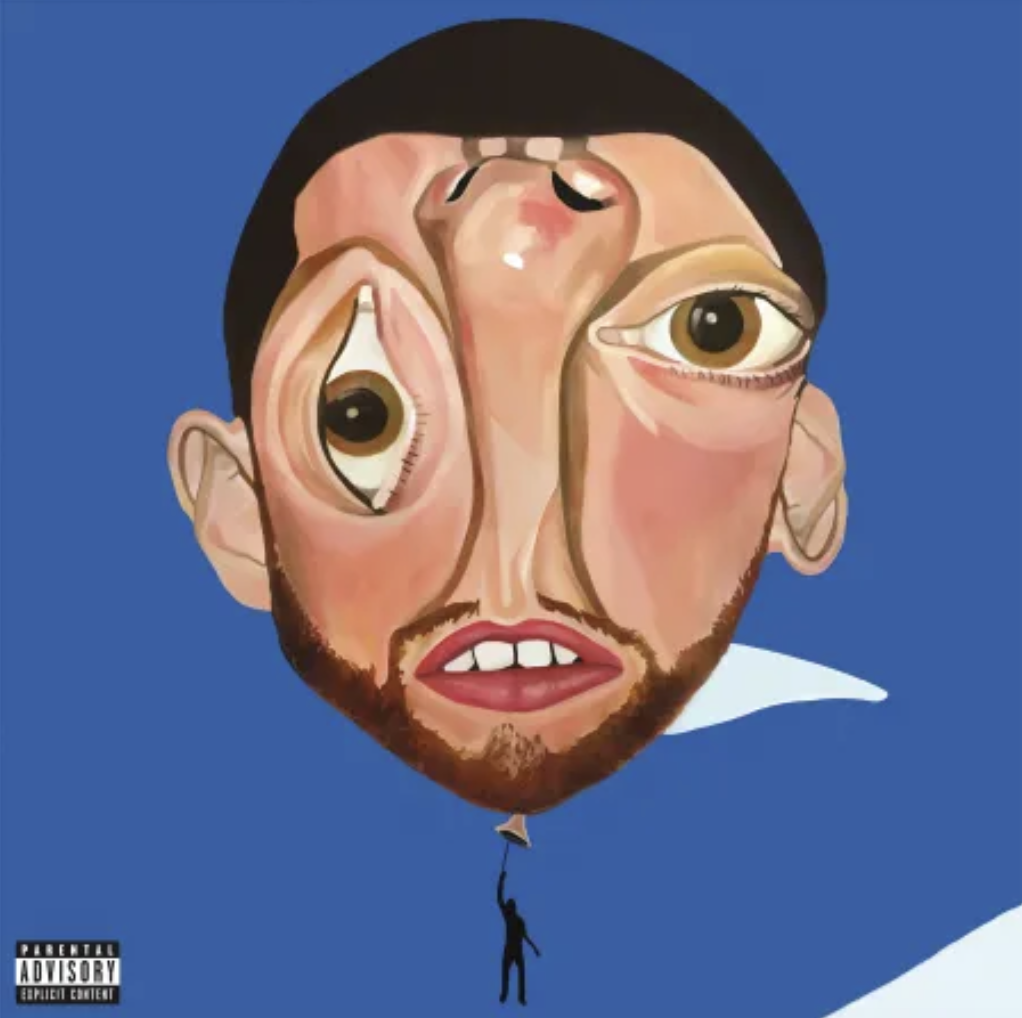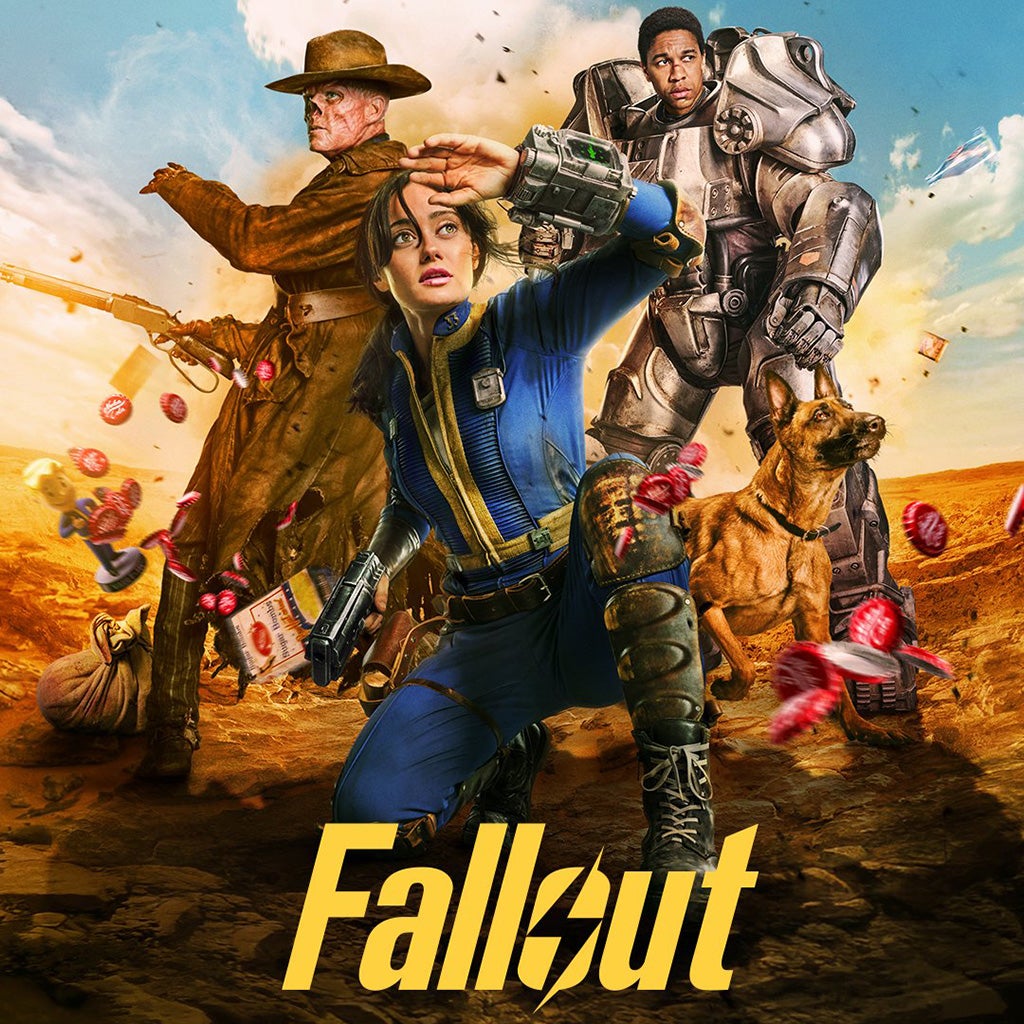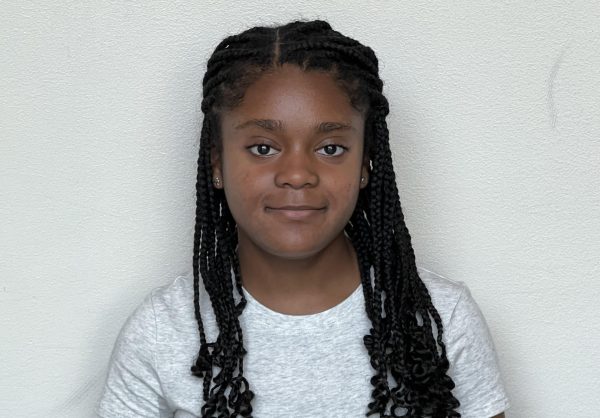The new movie “Wicked,” directed by Jon M. Chu, is the on-screen spin off of the well-known Broadway musical, which debuted in 2003. While the movie includes many elements of the original musical, it also adds depth by alluding to current issues that viewers may relate to.
Both lead roles are played by the acclaimed vocalists Cynthia Erivo and Ariana Grande, who show off their range throughout the movie — both artistically and vocally. The Wicked Witch of the West, known as Elphaba, is played by Erivo, while Glinda the Good Witch, simply known as Glinda, is played by Grande. The movie, directed by Chu (“Crazy Rich Asians,” “In The Heights”) and written by Winnie Holzman and Dana Fox, was a two-year project, accounting for the interruption caused by the SAG AFTRA strike in 2023. The on-screen version of “Wicked” displays a fairly diverse cast of characters and even provides commentary on the modern world.
In the opening scene of the movie, the munchkins celebrate the death of the Wicked Witch of the West, an event that many who are familiar with “The Wizard of Oz” recognize. When Glinda the Good Witch arrives to address the munchkins, she asks the question that the movie revolves around: “Are people born wicked, or do they have wickedness thrust upon them?” The movie is an extended flashback to the Wicked Witch of the West’s origins and rise to power. As someone who believes in a similar theory regarding the idea of nature versus nurture, I was intrigued by this idea and excited to see how the plot would address the question.
Elphaba is the child of an affair between her mother and a man who was not her husband. Presumably because of this, she is born with green skin and destructive powers that manifest through her anger. She is neglected by her father and teased by other children, which causes her to learn to fight back against cruelty while also being kind and respectful most of the time. I found this very interesting because many people who are treated poorly tend to inflict their pain on others through bullying as a coping mechanism. Elphaba chooses not to do this and instead treats everyone with kindness and respect, which I find commendable.
When Elphaba is sent to Shiz University, a magic school, to monitor her physically disabled sister, she meets and is forced to be roommates with Glinda, another witch, but one who is well-liked by her fellow students. The two don’t get along, as they both have different styles and life goals. Glinda wants to be the mentee of Madame Morrible, the headmistress of the school and a very powerful witch, while Elphaba wants to be accepted and to create good for the world. However, Madame Morrible chooses Elphaba as her mentee, much to the anger of Glinda. As Glinda has made the fact that she looks up to Madame Morrible clear, I believe that she has a right to be mad at Elphaba for “taking” her place, but there are better ways to deal with her anger than turning the other students against her. Madame Morrible encourages Elphaba to unlock her full magical potential in order to be recognized by a very powerful wizard who can make her wishes come true.
As the movie progresses, Elphaba starts to see that the society she lives in discriminates against animals, who in the film, can talk and have jobs of equal status to people. While she is at the school, one of her professors tells her about a movement to cage all animals and take away their ability to speak, which Elphaba doesn’t want to happen. As a result, unexpected friendships form and new villains are revealed. By the end of the movie, the viewer may have a very different view of the “wicked” witch character that they remember from “The Wizard of Oz.”
Erivo shapes Elphaba in a way that doesn’t allow the viewer to see her through one specific lens. Ervio also did all of her own stunts in the “Defying Gravity” scene while singing, which is commendable as it is very difficult to sing that well while being strapped to a harness and hanging in the air. Her character challenges the notion that wicked or evil people are born, not made. This shows that societal values can impact the way that someone is perceived, even if they are taking actions that would be usually considered good.
To me, this theme is important because many villains’ origin stories in the media do not account for societal values in the way that the villains are perceived; they are just considered to be inherently evil without explanation. However, “Wicked” really puts emphasis on the fact that Elphaba never does anything that would be considered evil, but her society’s view of her is what would make her seem evil. In fact, throughout the film, she is shown helping many different people, including different animals and her sister, but much of this goes unnoticed by her peers.
I liked Elphaba as a character for many of the more popular reasons: she was strong, kind and always did the right thing, even when those surrounding her were not kind to her. However, I also liked that her character didn’t inflict the same pain on others that was inflicted on her just because she was treated poorly and wanted to punish the world, which is what I have seen with many villain arcs. She maintained her strong and serious nature while also being kind and caring to those who were as well as those who were not kind to her, keeping the balance between the two extremes.
Grande, who plays Glinda, creates a character that fits the stereotype of the “pretty and popular” archetype, displaying an overall air of entitlement, self-centeredness and a shallow nature. As the movie continues, we see significant character development on her part, as she realizes that other people exist and deserve to be treated with kindness as well.
Unlike the original musical, the film reflects many current issues society is facing. Elphaba is treated differently than others because her skin is green, a very clear allusion to racial issues and perception of people based solely on appearance. The film also shows a minority of people attempting to silence the voices and stories of the animal citizens, a nod to many societies’ attempts to silence the voices of certain groups within the government. This movement also demonstrates a society’s attempts to create a common enemy used to scare people into submission for the promise of removing the perceived enemy and restoring “order,” which is reminiscent of the villainization and calls for removal of immigrants in European countries and in the United States.
Overall, I enjoyed the movie’s content and message. The acting was superb and the characters were complex enough to be interesting, but not so complex that I was confused. The story was easy to follow, but had enough plot twists to make it interesting. I really enjoyed the visual aesthetic of the university and the rest of the Oz world the filmmakers built. To me, the world was a cross between the Hogwarts style with the water features surrounding the university and the castle-like build and a more natural, rugged landscape in the forests, fields and cliffs around the school. The scenes filmed in the Emerald City reminded me of the town where the film “Wonka” took place. The most surprising part of the movie was definitely the depth and insight that was used to effectively weave current issues into the magic-based plot line without overwhelming the audience.
The only critique I have would be the aspect of world building. I understand the events of the movie mainly take place at the university, but I think that it would be interesting to experience other parts of Oz and see how the filmmakers would imagine and create the rest of the world. However, I am very excited for Part Two as Part One ends on a cliffhanger. Part Two will be released on November 21, 2025, about one year after Part One. Overall, I give “Wicked” a 4.5/5 rating and definitely recommend watching it.

